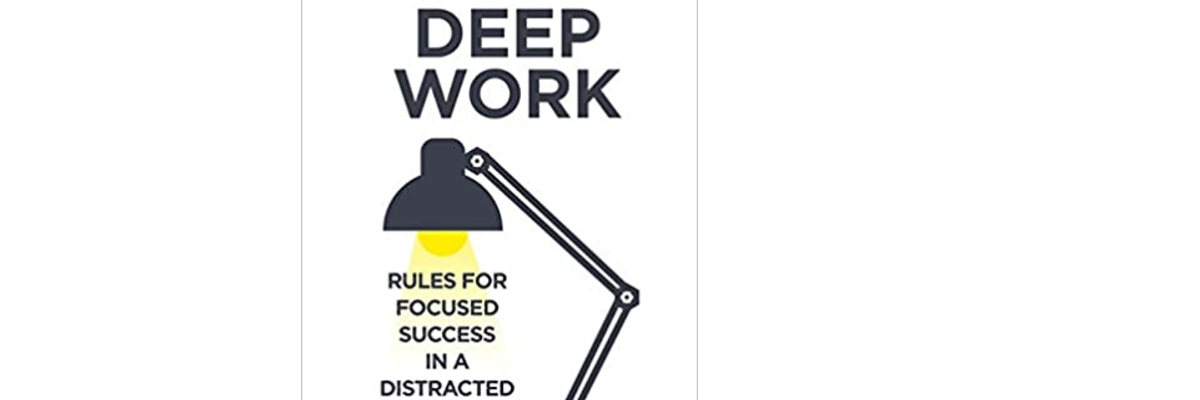November 30, 2020
‘Having a bunch of Mediocre Singers does not add up to a single outstanding performer’. The days of Average is over. In this world where ‘busyness’ (doing lots of work without progress) is a proxy for Productivity, this book on Deep Work by Carl Newport is a wake-up call. Carl Newport has brilliantly brought out how ‘We become what we pay attention to’. This book is therefore about the Skilful Management of Attention.
Two core abilities are required to thrive in the new economy: 1. The ability to master new things 2. The ability to produce at an elite level both in terms of Speed, Quantity and Quality
Both Require Deep Work.
So, what is Deep Work? (as opposed to Shallow Work) Deep Work is professional activities performed in a state of distraction-free concentration that push your mental capabilities to their limit. Deep Work requires 4 hours of Focus, 4-5 times a week.
So, why do we find it so hard to concentrate? It is because we are switching from one task to the next without closing the first. It is known as the ‘Attention Residue’. We have moved on to another task, but part of our concentration is still going back to the previous task. Therefore, it is vital in order to produce at an elite level – we need to give a full burst of concentration, then CLOSE what we were working on – literally and symbolically- before moving on to the next task. But what happens if the task is not complete? For this, the author suggests that all incomplete tasks should have a trusted plan for completion saved in a place that will be revisited, like a to-do list with a specific date and time. Switch off completely from the time you shut down. Trust in the plan you have made. Then the mind is at peace to move on to the next activity.
It is also important to set Routines- Wake up early or work at night- when the household is asleep; Set times in your calendar only for Deep Work. Or, if this is not possible then work like a journalist- high output in the snatches of time you get. But concentrate fully during this period.
Unfortunately, todays offices are not designed for Deep Work. The open office allows anyone to drop by, the e-mails are constantly popping up, and the need to be seen as responsive and available means that we drop what we are doing if we get a message or e-mail. DISTRACTION IS THE DESTROYER OF DEPTH. But it need not be that way. Set time schedules for reading e-mails and messages. Politely excuse yourself if there is an unscheduled interruption. Schedule your time for Deep Work and make it known on your calendar- so meeting requests can be rescheduled. No doubt, emergencies will be there. But if it is happening every day and every now and then, it implies that there is a structural issue to be addressed.
Shallow work on the other hand does not require deep concentration. It tends to not create much value and is easy to replicate. Here the author is at pains to point out that shallow work cannot be avoided. In fact, it is necessary- e-mails, reports, meetings, etc are some of its manifestations. The trick is to schedule shallow work batched in bursts around deep work/ work that requires concentration.
Now before you rush to buy the book – a word of caution. It is not an easy book to read. The style that the author has adopted, is to build a hypothesis through examples in the beginning of the chapter. It is then justified through well-reasoned arguments, before bringing out the learning. I have summarized the Key Learnings from the book. It does not substitute reading the book, but for a person who is not fond of reading, and this book is not an easy read, this review brings out the key actionable elements.

